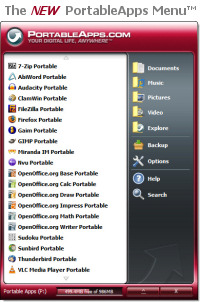Untuk menjalankan instruksi di Linux, gunakan Terminal atau Shell. Ada banyak program shell, salah satu yang paling banyak digunakan adalah BASH (Bourne Again Shell)
cat
Perintah untuk menampilkan isi teks file
cat [namafile]
#cat /etc/rc.d/rc.module
$cat /tmp/Hash
cd
Perintah untuk Pindah direktori
$ cd [nama direktori]
$ cd /home/mic/picture
maka direktori aktif akan berpindah ke /home/mic/picture
cfdisk
Perintah untuk mempartisi hardisk
#cfdisk /dev/sda
chfn
change finger information -perintah untuk merubah finger informatin user
chfn [user name]
$ chfn mic
chgrp
Memilih group owner dari sebuah file/direktori (hanya root yang bisa melakukannya ! )
#chgrp [group] [file/direktori name]
#chgrp eagle /tmp/flames/data/test1.doc
#chgrp eagle -r /tmp/flames/picture
r=recursive
chmod
Perintah untuk Mengubah mode proteksi /file permission file atau direktori
$ chmod [permission] file/direktori
RWX RWX RWX
Owner Group Other
$ chmod 755 /home/mic/picture/*.*
RWXRWXRWX
111101101
$ chmod 700 /home/mic/secret
rwxrwxrwx
111000000
clear
Perintah untuk membersihkan layar
$clear
cp
Perintah untuk Mencopy file
$ cp [source] [destination]
$ cp xxx.jpg /home/x/picturexxx
maka file gambar xxx.jpg akan dipindahkan ke direktori /home/x/picturexxx
grep
Perintah untuk melakukan scan file terhadap karakter tertentu
grep "pattern" filename
$grep "xxx" /tmp/doc/*
halt
Perintah untuk meng-halt system (hanya root yang bisa ! )
#halt –h now
Matikan system sekarang !!
init*
Perintah melakukan perpindahan antar level.
init 0123456
0=halt the system
1=single user mode
2=multi user without NFS
3=Full Multi user
4=unused
5=start X window
6=reboot system
# init 6
reboot
# init 5
startx window
Umumnya default adalah init 3
ln- Symbolic Link
Perintah untuk memberikan nama link terhadap suatu file
$ ln -s [file] [ link name]
$ ln -s /home/x/picture/xxx.jpg saku
locate*
Perintah untuk pencarian file dengan cepat
locate [file name]
$locate document1.doc
ls
Perintah untuk Melihat isi direktori
$ ls
Akan ditampilkan isi folder Anda.
$ ls -la
akan ditampilan isi folder lengkap dengan hak akses (file permission)
mkdir
make directory- perintah untuk membuat direktori
#mkdir /mnt/flashdisk
#mkdir 755 /tmp/musik/Rock
mv
Perintah untuk Memindah file /direktori
$ mv [source] [destination]
$ mv xxx.jpg /home/x/picture
file xxx.jpg akan dipindahkan ke direktori /home/x/picture
Hati-hati ! memindah berbeda dengan mencopy lho !
$ mv xxx.jpg gbr-x.jpg
Nama file xxx.jpg berubah menjadi gbr-x.jpg
$ mv /home/x/picture /home/x/gambar
Direktori /home/x/picture berubah nama menjadi /home/x/gambar
ping
Perintah untuk mengecek keaktifan suatu komputer/server dalam jaringan
ping [hostname/IP number]
#ping skylarx2
#ping 192.168.0.17
#ping www.yahoo.com (jika terhubung ke-internet)
pkgtool
Perintah pada slackware untuk menambah, meremove, melihat program. Pkgtool juga dapat digunakan untuk mengatur konfigurasi global sistem Linux. (Hanya berlaku bagi root ! )
#pkgtool
pwd
Perintah untuk melihat direktori aktif
$ pwd
Jika Anda berada di /home/root/mp3/SOAD, maka setelah mengetikkan pwd akan muncul
/home/root/mp3/SOAD
rm
Perintah untuk Menghapus file /direktori
$ rm [file name]
$ rm /home/x/gambar/gbr-x.jpg
$ rm -r /home/x/gambar
$ rm /tmp/mp3/barat/Sky is 0ver.mp3
pada contoh ke-3, penggunaan r akan menyebabkan semua file dan folder /home/x/gambar akan 'habis' (r= recursive)
rmdir
remove direktory - perintah untuk meremove directory
#rmdir /tmp/mp3/Rock/SerjTankian
shutdown
Perintah untuk shutdown
Shutdown
#shutdown -h now
shutdown tanpa ada peringatan.
#shutdown -t 15
shutdown 15 detik lagi.....
#shutdown -r now
merestart komputer !
startx
Perintah untuk mengaktifkan system X window
$startx
Jika terjadi "kecelakaan" tekan Ctrl-Alt-Backspace untuk keluar dari system X window
su
Menjadi superuser atau log sebagai user ID lain
$su [username]
$su
password :***************
# (sudah sebagai superuser)
$su fog
password :***************
$ (log sebagai fog)
top
Perintah untuk mengetahui proses yang terjadi
$top
touch
Perintah untuk membuat file kosong
touch [file name]
$touch /tmp/dirBaru
useradd /userdel*
Perintah untuk menambah /menghapus user (hanya root yang bisa! )
useradd [user name]
#useradd flames
#userdel x-fog
which
Perintah untuk menunjukan letak file yang diakses
which [file name]
$which /tmp/data
whereis
Perintah untuk mencari sebuah file
Whereis [namafile]
$whereis bab2.doc
xinit
Init X window tanpa perlu masuk ke window manager








 1:45 PM
1:45 PM
 fog flames
fog flames



















